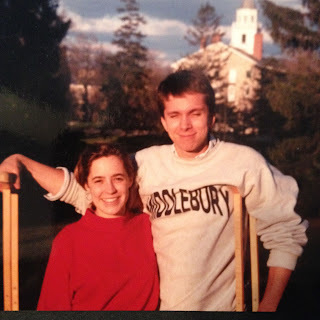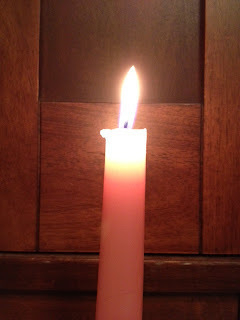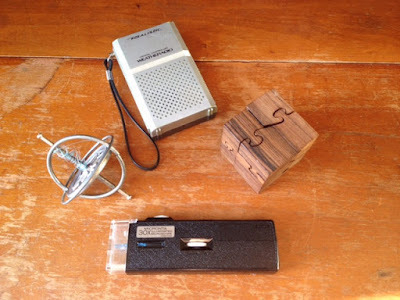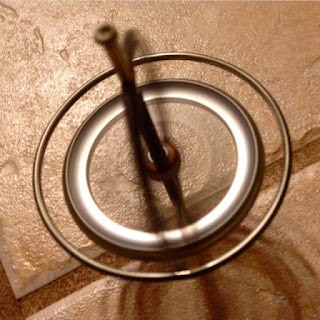Teachers
∞
John T. Meyer Interviews Me On His Leadmore Podcast
John T. Meyer, CEO of Lemonly, is one of the best interviewers I've known. In his Leadmore podcast he has interviewed immigration lawyer Taneeza Islam, Governor Dennis Daugaard, Augustana University President Stephanie Herseth Sandlin, Vaney Hariri, epidemiologist Dr. Lon Kightlinger, and a number of other leaders.
[youtube [www.youtube.com/watch](https://www.youtube.com/watch?v=MyF_PELenoo])
I'm delighted to have joined him in this conversation about teaching as a kind of leadership; ancestral languages; and the value of learning what some might call "unnecessary" knowledge like the liberal arts.
You can find it wherever you get podcasts. You can also find it as a video here.
∞
Gracias, señora Orza
Estimada Sra. Orza,
One day when I was in middle school in New York you said to me “You’re good at languages. You should go to Middlebury.” I hadn’t heard of it before, and I had been planning to attend the cheapest local college I could attend, to save my family the cost of college. Then you handed me a brochure from Middlebury, about their summer language programs. A year later, when I was leaving to work in Nepal for the summer, you gave me a blank journal as a parting gift, reminding me that writing matters.
I haven’t seen you since then, and I haven’t been able to track you down to thank you in person, so I’m firing this out into the internet to say thank you to you and to all the other teachers like you. Why? Because you changed my life.
Three years after I last saw you, I drove to Middlebury to check it out, and I fell in love with the place. I sat in on a Religion class (a subject I thought I wouldn't find interesting at all) and learned more about religion in that single hour than I thought possible.
So I applied, and I got in, with a scholarship. I guess they thought I should go there, too! Over the next four years that college made it possible for me to study in Spain; to learn to read and translate multiple forms of classical Greek; to be exposed to history as more than names and dates; to study physics, and math, philosophy, and even a little more religion.
Looking back on those years now, I see that my whole career has arisen out of classes I took there.
And best of all, I met this amazing woman! I think you’d like her. Like you, she’s smart and sweet. Like you, she encourages me to keep learning. And like you, she’s fluent in Spanish.
Far more than the classes, she has changed my life. So often it's the people you meet--and not just the things you learn--that change you. I'm grateful to have met you both.
So thanks for being a Spanish teacher in a middle school in rural New York. Thanks for putting up with all of us kids in your classes, year after year. And thanks for taking my future seriously enough that you thought that my life, my travels, and my studies really mattered. You saw all that far more clearly than I did back then, but over the years I’ve come to see what you saw, and I’m forever grateful.
Your loving student,
Dave
One day when I was in middle school in New York you said to me “You’re good at languages. You should go to Middlebury.” I hadn’t heard of it before, and I had been planning to attend the cheapest local college I could attend, to save my family the cost of college. Then you handed me a brochure from Middlebury, about their summer language programs. A year later, when I was leaving to work in Nepal for the summer, you gave me a blank journal as a parting gift, reminding me that writing matters.
I haven’t seen you since then, and I haven’t been able to track you down to thank you in person, so I’m firing this out into the internet to say thank you to you and to all the other teachers like you. Why? Because you changed my life.
Three years after I last saw you, I drove to Middlebury to check it out, and I fell in love with the place. I sat in on a Religion class (a subject I thought I wouldn't find interesting at all) and learned more about religion in that single hour than I thought possible.
So I applied, and I got in, with a scholarship. I guess they thought I should go there, too! Over the next four years that college made it possible for me to study in Spain; to learn to read and translate multiple forms of classical Greek; to be exposed to history as more than names and dates; to study physics, and math, philosophy, and even a little more religion.
Looking back on those years now, I see that my whole career has arisen out of classes I took there.
And best of all, I met this amazing woman! I think you’d like her. Like you, she’s smart and sweet. Like you, she encourages me to keep learning. And like you, she’s fluent in Spanish.
 |
| We started dating in college, and we're still dating each other now, even though we're both married. I think you'd like her. |
Far more than the classes, she has changed my life. So often it's the people you meet--and not just the things you learn--that change you. I'm grateful to have met you both.
So thanks for being a Spanish teacher in a middle school in rural New York. Thanks for putting up with all of us kids in your classes, year after year. And thanks for taking my future seriously enough that you thought that my life, my travels, and my studies really mattered. You saw all that far more clearly than I did back then, but over the years I’ve come to see what you saw, and I’m forever grateful.
Your loving student,
Dave
∞
Gifts From My Father
My father spent his career as an engineer working for IBM and NASA. Growing up with an engineer is an education in itself. As a boy, I felt like whenever I was with my father, I was learning new things. We'd go out for pizza and he'd write chemical equations on napkins. We'd go to the Ashokan Reservoir and he'd tell me the history of the valley that was flooded so that New York could get water, and then he'd tell me how they engineered the pipeline that carried the water to the city.
Often he was at his desk or his workbench, and I didn't want to interrupt him when he was working on problem-solving, but I'd try to spend time in his office or workroom until I made too much noise and was asked to move on to other exploits. I'd stare at his shelves, heavy with books and tools, and full of things he had picked up in his travels. He had a small, round stone that he had found somewhere, that had been shaped as a toy by our Algonquin ancestors. He had musical instruments and geometric shapes made of plastic and wire, and books on how to learn Russian or how to understand religion. On his workbench there was an oscilloscope that he'd sometimes use, and I loved that machine's interpretation of the data it received. My father's mind is a small liberal arts college unto itself, and his curiosity about the world seems to know no limits.
Recently I was going through some boxes of things that have moved across the country with me many times. I am an anti-hoarder, someone who prefers to give things away rather than store them forever. But some things are hard to part with, especially when the memories associated with them are so strong.
Here's a snapshot of a few of the things I hang onto precisely because they remind me of Dad. The gyroscope and wooden puzzle were gifts he brought me when I was a small boy. I think he got them on business trips. I've kept them both because they bring me wonder and delight, and because I like to use them to teach children. The weather radio is probably silly, and I don't use it any more, but it reminds me both of Dad's constant interest in solving problems before they are crises, and of his lifelong interest in electrical engineering. He built a computer in his fraternity house back before most people knew what computers were. He would take apart radios so he could put them back together and understand how they worked.
I never picked up his gift for electrical engineering, but I've got his curiosity about how things work, which I tend to apply more towards ecology than technology. For me, technology and ecology come together in some important ways, nonetheless. This pocket microscope he gave me has been with me for thirty years or more, and I like to think of it as a seed. I've often been tempted to give it away, but instead I have held onto it, and every time I think of giving it away I buy more of them and give them to teachers. Each year I teach for a month in Guatemala, and while I am there I look for teachers in local schools and give them boxes of microscopes and other hand lenses.
I am reminded that much of the history of science (Dad's field ) and of philosophy (my field) have grown with advances in optics. When scientists get better lenses and lasers and satellites, knowledge tends to grow rapidly.
The same is true for children: give them a hand lens, or an insect viewer, or a microscope with some prepared slides, and the world will suddenly become new to them. Dad planted that seed in me long ago. Now I carry a hand lens with me almost everywhere I go. I suppose the whole of my career is a reflection of the things that delight Dad and provoke his curiosity; most of them delight me and make me curious, too. And just as Dad passed on his curiosity to me, now it is my turn to pass it on to others.
The same is true for children: give them a hand lens, or an insect viewer, or a microscope with some prepared slides, and the world will suddenly become new to them. Dad planted that seed in me long ago. Now I carry a hand lens with me almost everywhere I go. I suppose the whole of my career is a reflection of the things that delight Dad and provoke his curiosity; most of them delight me and make me curious, too. And just as Dad passed on his curiosity to me, now it is my turn to pass it on to others.
∞

A Poem As I Approach Gaudete Sunday
Advent
Consider the angels.
Because maybe the broken men get too much attention.
Drunk with power and impotent with the kind of blind rage
That will carelessly hurl their countrymen down to the grave,
They try, in fiery futility, to salve some inner wound
By wasting the lives of others in blind fury and then,
(Perhaps in a final moment of penitent clarity,
or in obedience to the last demonic urge)
Waste themselves,
As mothers wail.
This monotone litany of nightmares,
It’s a constant, manicured, damnable drone. The same words
We have heard again and again. I am no wise man,
I can find no meaning in them.
Cameras frame parents hunched over, clutching each other
Like living icons of passion and grief, offered so that we
might worship.
And I’m ashamed at how hard it is not to continue to stare
At this flickering, televised altar of perfect priests and
the grief they sell.
What I need now doesn’t come from gazing at monsters.
But from giving thanks for the angels:
For brave souls in badges and brims,
Who run towards the fire, not away,
Who guide the children to safety,
Who help legs paralyzed with fear find their feet and find
their home again;
For dumbstruck neighbors who stop everything,
And cry together so no one has to cry alone;
For men and women and children on the other side of the
world,
Who do not know us but mourn with us anyway,
Knowing that we are family;
For people who see the darkness of despair descending,
And resolve to be light today, and keep that resolution
tomorrow.
And for the teachers.
The teachers
Who will somehow find a way to make their feet walk back
into their schools;
Who have seen the monsters, and know they are real, and yet,
Who refuse to worship their fear.
They know it is better
To kneel on the floor, and read, and play,
Remembering for all of us,
With good will and with daily acts of intercession,
That nothing must be allowed to stop
The sacred work
Of children.

***
David L. O’Hara
12/15/2012

